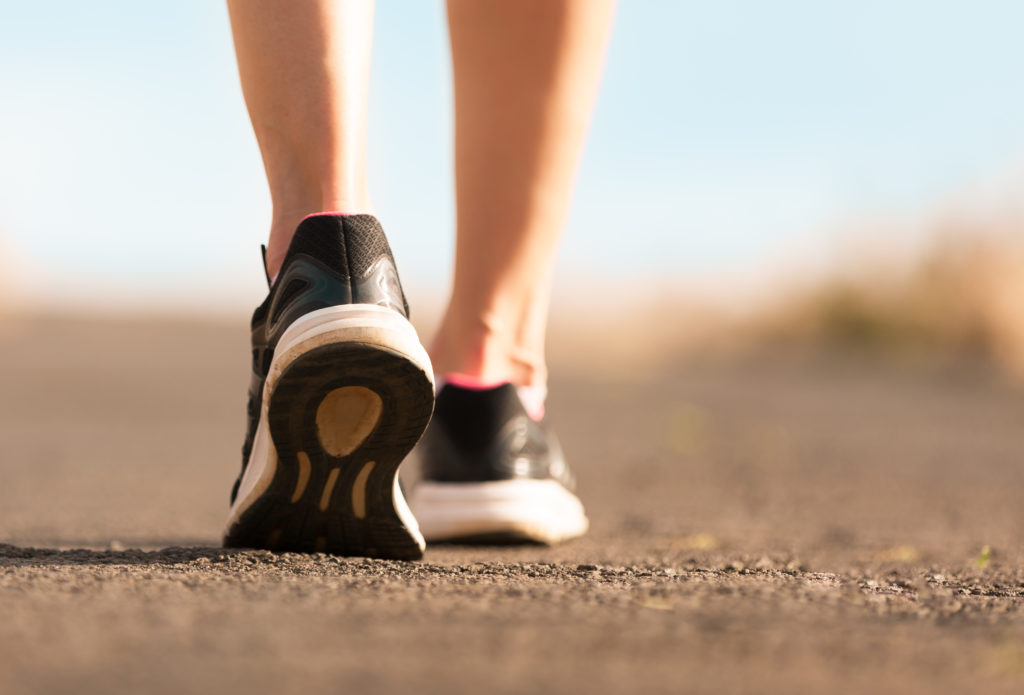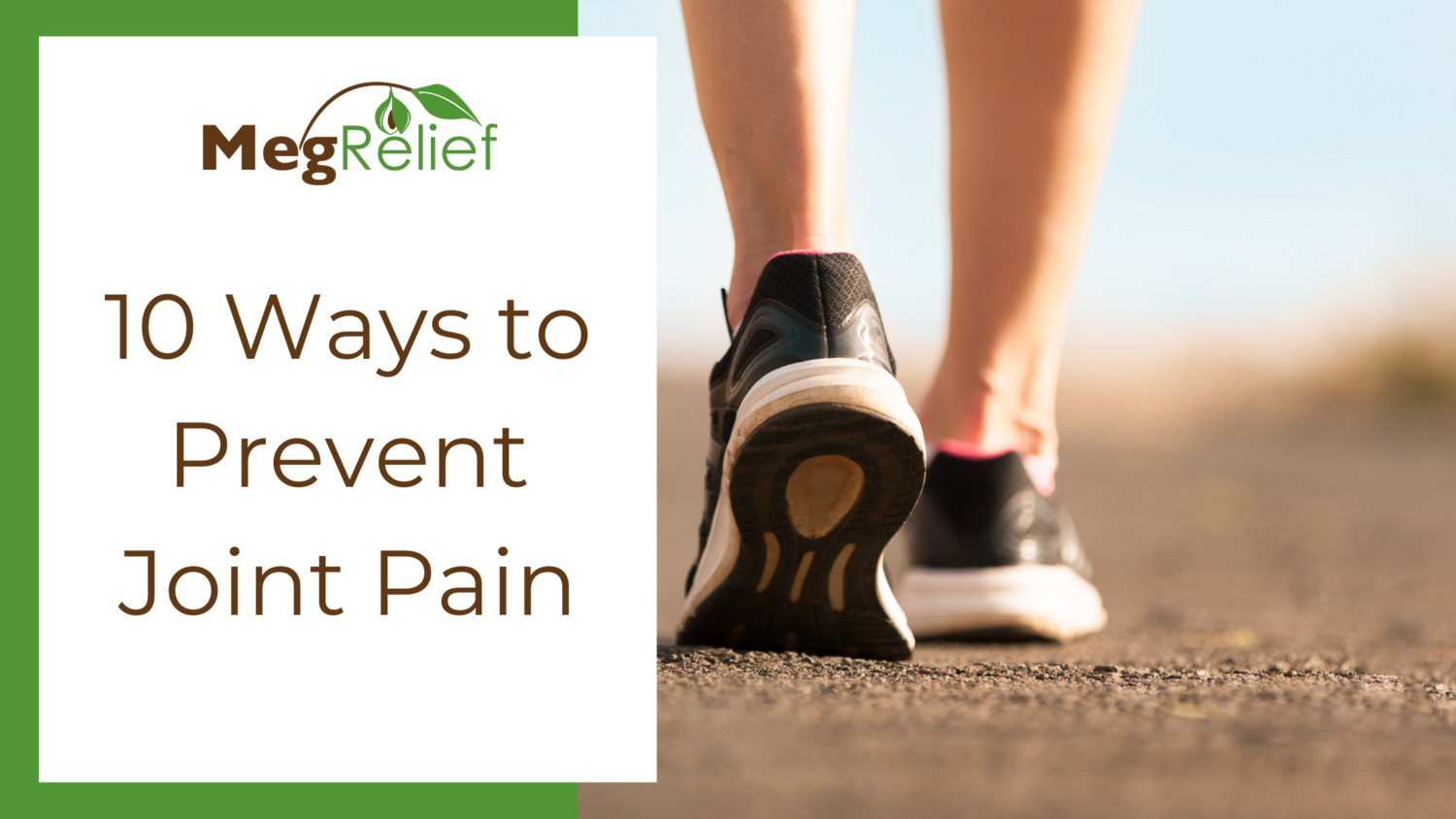It doesn’t matter if you are 20 or 40, now is the time to prevent joint pain before it begins.
Joint pain can be minor at best and severe in its worst form. Arthritis, tendonitis, sprains, breaks, and autoimmune diseases are all causes of joint pain.
So how can you prevent joint pain?
We have 10 ways to help you prevent joint pain.
Ten tips to prevent joint pain
The ten tips below can help prevent joint pain as you get older; start now and continue throughout your lifetime. If you are a parent, practice these habits with your children and their chance of having joint pain will be greatly reduced.
- Drink your milk. Milk provides calcium and calcium is the building block of healthy bones and joints. As parents, we make sure that our kids drink their milk, but as we get older, we tend to stop drinking the milk we need. We should also be eating foods such as yogurt, cheese, leafy green vegetables, and fish. As we age, if we do not consume enough calcium, our bones can thin and become brittle making them easier to break or fracture and cause joint damage.
- Exercise a minimum of three times per week. Low-impact exercise is the best type of exercise as it puts the least amount of stress on the joints. Exercise also strengthens the muscles around the bones and joints and helps keep them stable. Low-impact exercises include walking, swimming, bicycling and yoga.
- Forget the fad diets for weight loss. Eat a well-balanced diet that is made up of fresh vegetables and fruits, fish, nuts, seeds, poultry, and lean red meat in moderation. Use portion control and skip the junk food of candies, chips, and cakes. Studies show that a Mediterranean diet is beneficial due to it being anti-inflammatory, having anti-oxidants, protein, good carbs and fat that help provide overall protection from diseases such as diabetes, heart disease, arthritis, and others.
- Soak up vitamin D from the sun. If you feel that you may be low on vitamin D, ask your doctor to check your levels. If you are deficient, he or she may prescribe vitamin D for you to take every day. Vitamin D is important to help protect and repair bones.
- Watch your caffeine consumption. Studies show that over consumption of caffeine can lead to a higher risk of hip fractures as we age. Coffee, caffeinated teas, sodas, energy drinks, and chocolate all contain caffeine.
- Add resistance training to your work out. Resistance training not only strengthens bones and strengthens and tones muscles; it also improves balance and coordination to prevent trips and falls.
- Increase your omega-3 fatty acids and your overall intake of good fat. You can find these in fish, extra virgin olive oil, canola oil, beans, and legumes, all of which are recommended by the Mediterranean diet. This is a good diet for a healthy heart too.
- Lose weight if you are overweight. Carrying around extra pounds puts undue stress on joints and bones. It can also cause stress fractures in the feet, ankles, knees and hips.
- Ladies – Watch the height of your heels. High heels can throw off the alignment of the knees, hips, and back and can lead to falls which can cause fractures and breaks. They may look great, but they are not necessarily great for your bones! Wear good shoes that support your body.
- If you play sports, wear the proper gear. If you feel that your joint(s) are becoming unstable, contact your doctor or physical therapist as they may be able to recommend so external support that can be used safely and keep you moving.

Tips for dealing with joint pain
If you already have joint pain, here are some tips to help you deal with the pain.
Before doing any of these, first see your doctor for a diagnosis as to what is causing the joint pain.
- Apply hot and cold packs. Cold helps reduce swelling, 10 minutes on, two hours off. Follow that with heat, 20 minutes on, two hours off. Heat helps promote blood flow and relaxes stiff muscles.
- Maintain a healthy weight to take stress off the joints.
- Do gentle stretches and exercises.
- Use essential oils like MegRelief made from nutmeg, peppermint, and others that have analgesic and anti-inflammatory properties. These are massaged into the area of the joint.
- Eat an anti-inflammatory diet such as the Mediterranean diet.
- Soak in Epsom salt which helps relieve pain and soreness.
- Try to give repetitive motions a break, especially if doing them is just a hobby.
- Stretch to reduce stiffness using yoga or tai chi.
- Try capsaicin creams. You can even make your own capsaicin rub with olive oil and cayenne pepper. Use rubber gloves or gauze to apply so that you do not get it in your eyes, mouth, or nasal passages as it will sting and burn those sensitive areas.
- Try acupuncture but make sure that the practitioner is reputable first.
- Give massage therapy a try; it not only eases stress, but it relaxes muscles.
- Meditation can also reduce stress and help reduce your joint pain. Depression can make the pain worse; if meditation isn’t enough, see your doctor for other ways to treat depression.
- At times, you may need pharmaceutical pain medication, but be careful with those as they can be addictive. Also, pharmaceutical anti-inflammatories can carry both serious and minor side effects.
- Pay attention to the weather. If it is cold and damp, layer up.
- If necessary, delegate jobs to others.
You can use these tips to prevent joint pain, starting now. The best medicine is always prevention.
So pay attention to your diet and exercise, wear proper shoes, drink your milk, reduce your caffeine intake, increase your omega-3s, soak up vitamin D and add resistance training. If you play sports, make sure you wear the proper gear to help protect your bones and joints. Try to take frequent breaks from repetitive motions at work or for a hobby. All these things can help keep your bones and joints healthy and painless even as you age.






